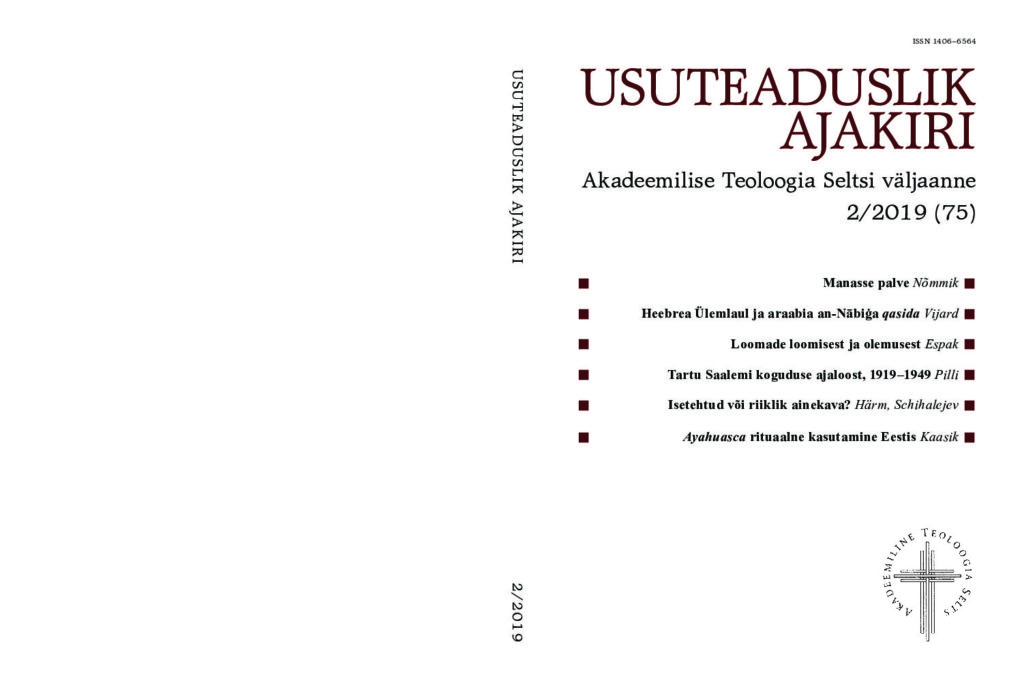Heebrea Ülemlaulu ja araabia an-Nābiġa qasida kontsentriline idee. Roland Meynet’ retoorilise meetodi põhjal
The Concentric Idea of the Hebrew Song of Songs and Arabic an-Nābiġa’s qasīda Based on Roland Meynet’s Method of Rhetoric
Author(s): Alice VijardSubject(s): Theology and Religion, Islam studies, History of Judaism, Comparative Study of Literature
Published by: Akadeemiline Teoloogia Selts
Keywords: Pre-Islamic poetry; Biblical Hebrew poetry; The Song of Songs; method of rhetorical analysis;
Summary/Abstract: King Solomon of Israel is known from the Old Testament as the son of king David, being legendary by his great wealth and wisdom. In the First Book of the Kings chapters 1–11 are about his life, and the following Biblical Hebrew texts – Proverbs, Ecclesiastes and Song of Solomon are attributed to him. The Islamic world knows him as prophet Sulaymān. Similarities between the Song of Songs and Arabic poetry have often been established mostly because of their sensual language. Also, the descriptive genre of waṣf, which appears in Song of Songs 4:1–7, 5:10–16, 6:4–7 and 7:2–8 has been a very popular parallel. Further, there is a pre-Islamic poet an-Nābiġa aḏ-Ḏubyānī (active in 570–600), who has been considered a Christian. Even if this proposition is not strongly supported, it is known that he was familiar with Christian tradition. Using Roland Meynet’s method of rhetorical analysis, the article focuses on the question whether it is possible to find more examples of common ground in the Song of Songs and an-Nābiġa aḏ-Ḏubyānī’s poetry in terms of structure, genre, and meaning. The results of comparison of the Song of Songs and an-Nābiġa aḏ-Ḏubyānī’s qasīda show that they both have concentric composition and that the Song of Songs has had a great influence on an-Nābiġa aḏ-Ḏubyānī’s poetry.
Journal: Usuteaduslik Ajakiri
- Issue Year: 2019
- Issue No: 2 (75)
- Page Range: 25-47
- Page Count: 23
- Language: Estonian

